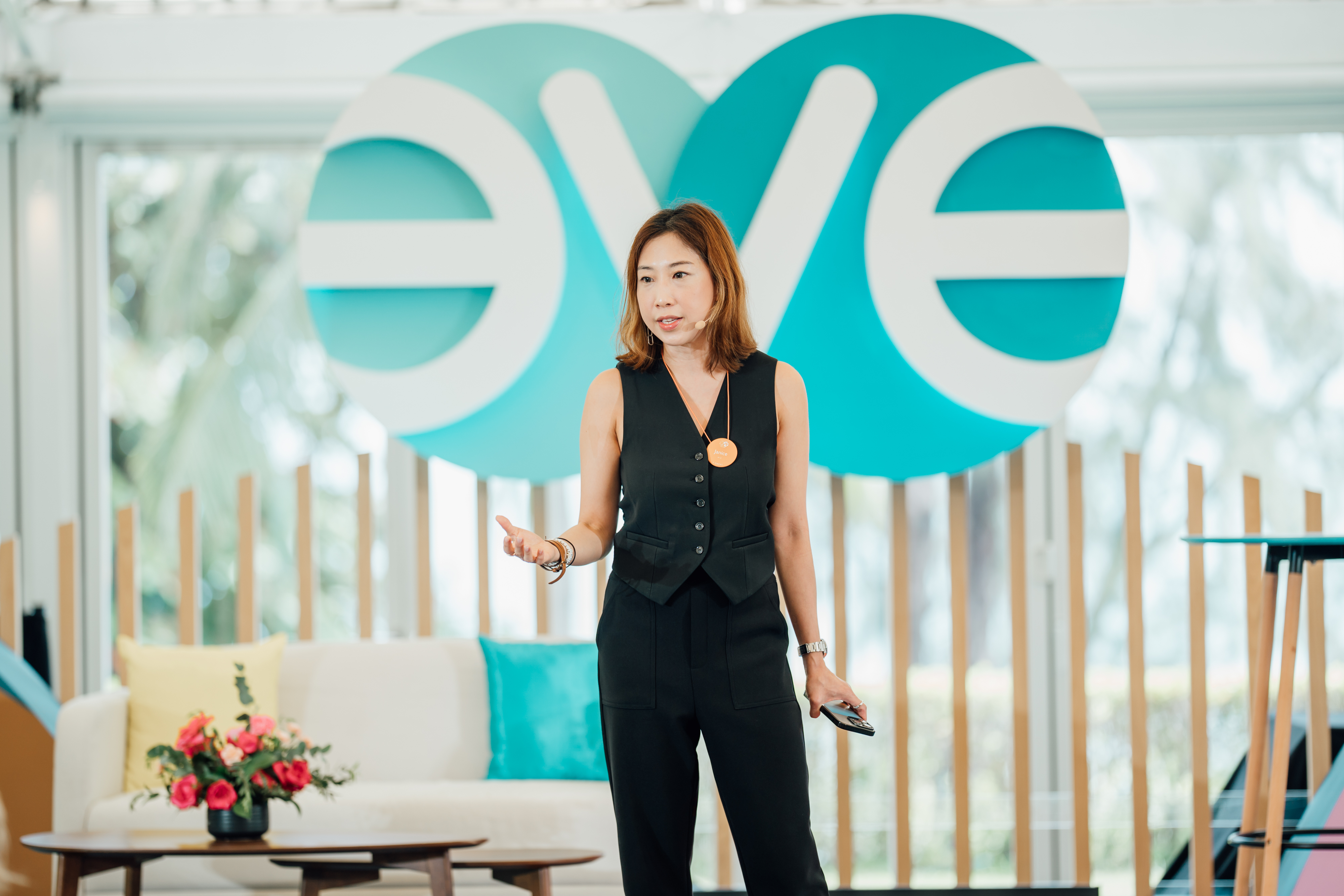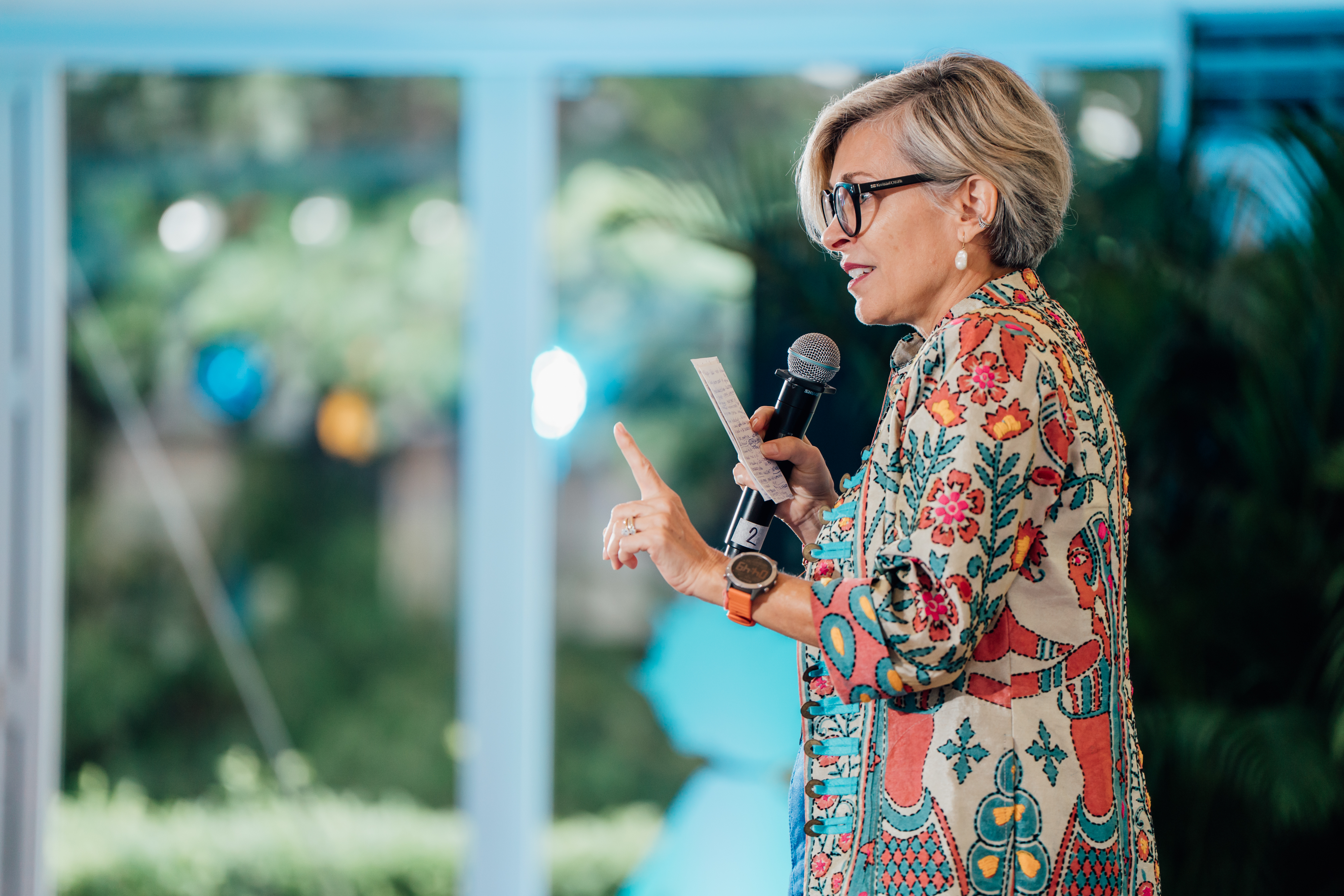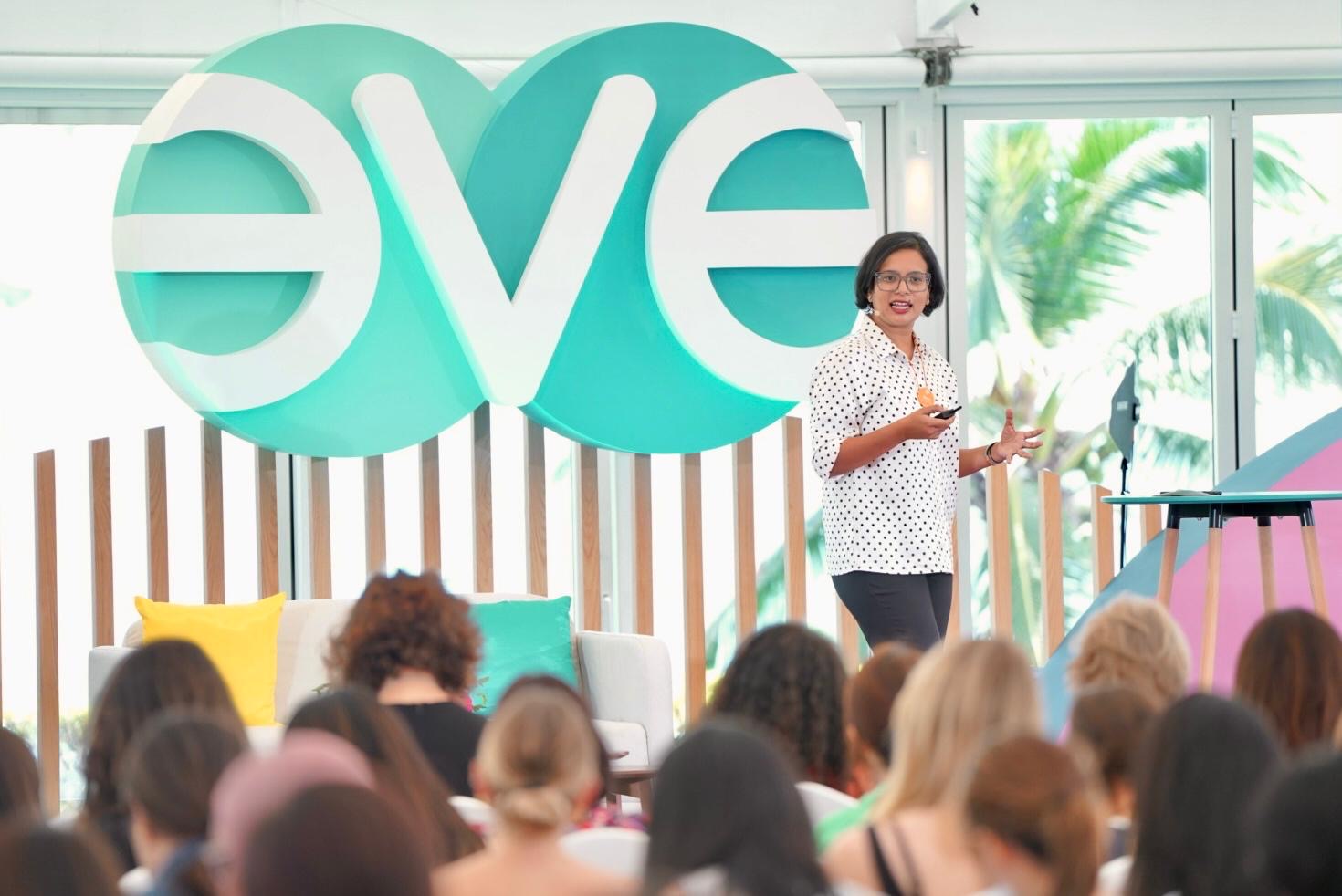An encounter with Angela Guy, Senior VP Diversity & Inclusion L’Oréal USA and Rebecca Caruso, VP Communications, Diversity & Inclusion L’Oréal USA.
EVE Program: The US has a strong socio-cultural and historical context. What is its impact, its assets and drawback on the diversity policy of the L’Oréal group?
Angela Guy: The US is really a melting pot of the world. Gender Equity, Social and Ethnic diversity are an important part of who we are as a country. Immigrants represent about 13% of the US population. 1 in 5 Americans has a disability.

Rebecca Caruso, VP Communications, Diversity & Inclusion L’Oréal USA
Because we have this mosaic of people, we have a huge opportunity to get closer to our consumer and expand the innovation and creativity of our workforce by leveraging these differences within our workplace.
Rebecca Caruso: The marketplace in the US is changing so what has been considered the minority population in the US for a long time has been steadily increasing. By 2035, at least half of the US will be comprised of multiple, underrepresented ethnic groups. It’s a dynamic shift from where we are today. The appreciation for diversity is only going to be more important.
EVE Program: What do you think about the way diversity management is implemented in other countries?

Angela Guy, Senior VP Diversity & Inclusion L’Oréal USA
Angela Guy: Each country has their own unique opportunities to grow and develop. What’s great about the US is that we have the ability to measure different types of diversity compared to other countries. Every ten years, the US has a nationwide census that asks the population to disclose who they are: what race, what gender, what age, the size of their household, etc. From that, Federal funding for communities, government representation and support for laws are impacted. This data is also useful for the more progressive companies to leverage when developing a Diversity & Inclusion strategy.
EVE Program: How does the US deal with gender inequality at work? Are there special measures to fight it?
Angela Guy: Gender inequality in the workplace exists in the
US Marketplace, as it does around the world. There are a number of governmental agencies, nonprofit organizations, community and business leaders focused on minimizing the gaps in women’s leadership, pay, educational inequities, parental leaves, childcare and a variety of other factors that influence equity.
EVE Program: What should be particularly worked on?
Angela Guy: Each country and each company has to take a stand on gender equity and implement programs to change it. I am proud to work for a company like L’Oréal that has established a global ambition to balance gender representation and equal pay for equal work across all levels of the organization. L’Oréal implements internal and external metrics to measure progress in leadership development, equal pay, mentoring and sponsorship, promotions and policies. Many L’Oréal subsidaries, like L’Oréal USA have been certified by the EDGE Certification Foundation and the Gender Equality European Standard, to validate their efforts to support gender equity in the workplace.
Rebecca Caruso: We just received our EDGE re-certification for the second time this year. Angela always says « you measure what you treasure » and that’s true. If you care enough to look at the metrics and see where you stack up, then you can develop a plan to address those areas where you have challenges.
EVE Program: What is L’Oréal’s position about Corporate Social Responsibility (CSR) and social innovation? What role does the group plan to play on a socio-economical level?
Angela Guy: L’Oréal has what I believe to be an innovative approach to CSR. The L’Oréal Sharing Beauty with All platform looks at sustainability in the way we produce, develop, innovate and live. This economic development model includes reductions in CO2 emissions, water and waste. We are assessing the footprint of our products, raising consumer awareness, promoting access to employment and inclusion within our communities. We are working with our suppliers while promoting and reducing the environmental footprint of our formulas, to name a few. Many of these global initiatives are in alignment with the United Nation’s Sustainable Development Goals.
Rebecca Caruso: Within this framework, each country and each business within the country has corporate responsibilities, charities or NGOs that they work with to help develop the cause that is most relevant to their businesses. We have brands that are focusing on HIV Aids, clean water, women in science and digital careers, cancer prevention, children’s healthcare, and more.
EVE Program: As far as empowerment and leadership are concerned, who would you say are the most inspiring contemporary American women?
Angela Guy: The US has many strong, inspiring women who really care about advancing women and women’s rights. Most of my inspiration came from my mother. She was an incredibly creative and courageous woman who expertly managed the complexity of work, home, family and community.
Rebecca Caruso: Women like Michelle Obama, Oprah Winfrey, Geena Davis, Patricia Arquette, Sheryl Sandburg have been inspiring to many women in our country. That said, my daughters and my mom, who is 94 years old, still inspire me.
Interview by Eloise Bouton & Marie Donzel, with complicity of Christina Hillebrand






